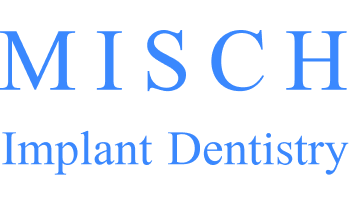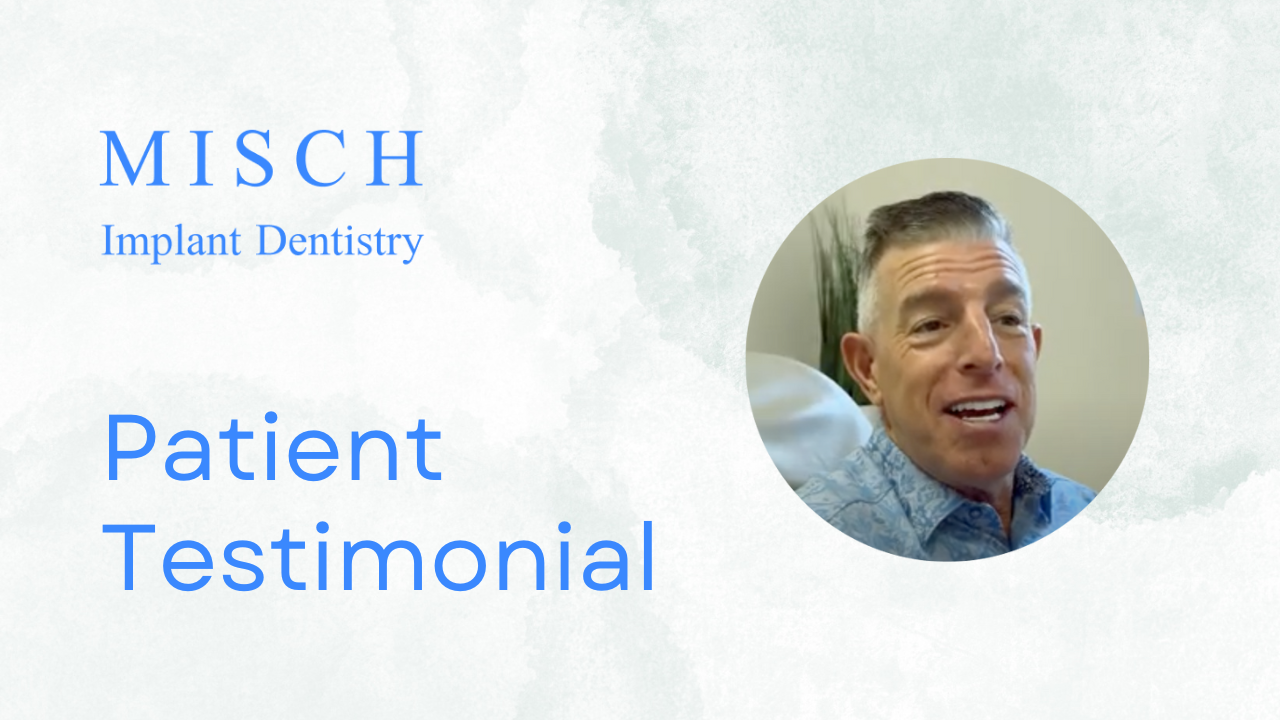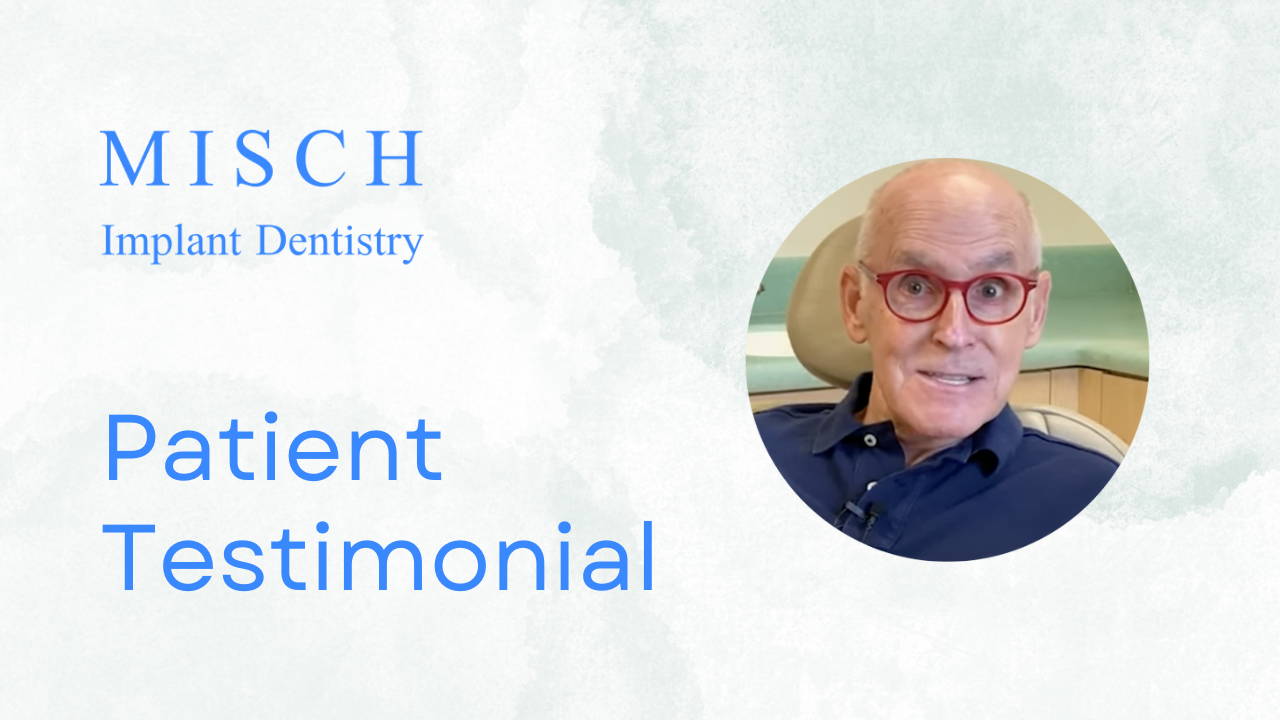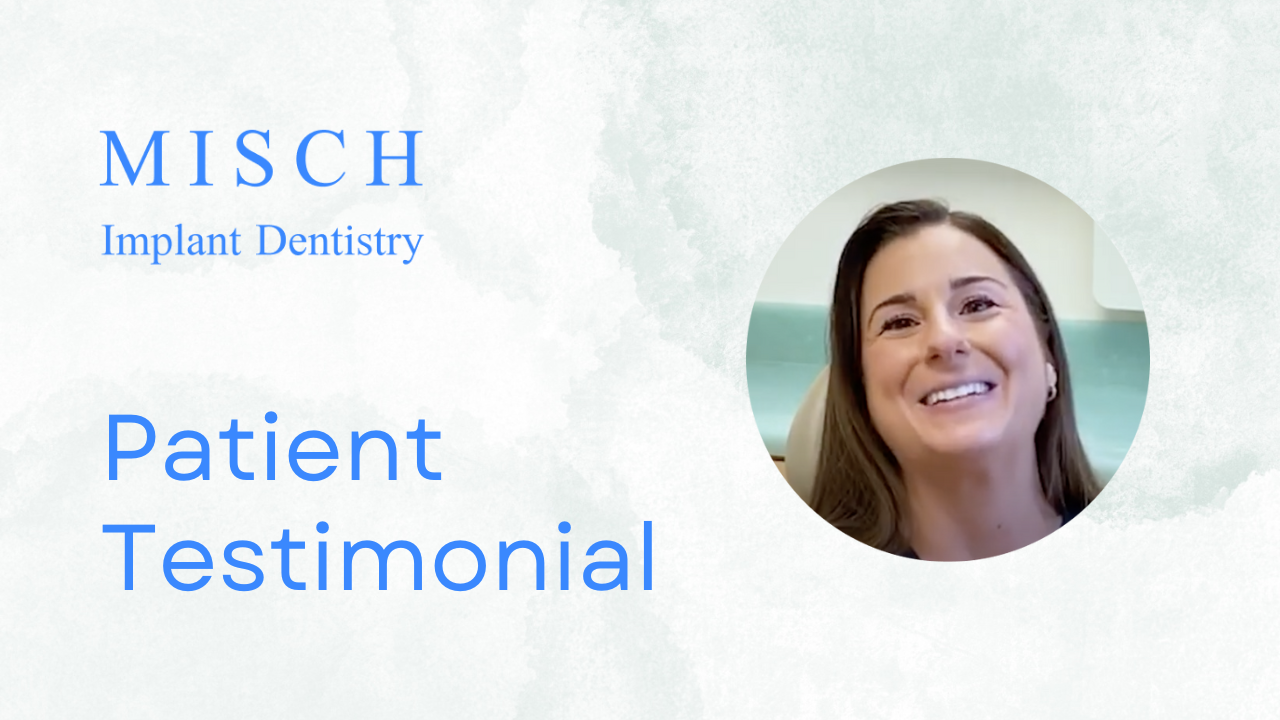
Misch Implant Dentistry - Can my dental implants be made to blend in with my natural teeth?
Misch Implant Dentistry - Dental Implant FAQs
Misch Implant Dentistry - Which are better: dentures or implants?
What Are Dental Implants?
An implant constitutes a substitute tooth, comprising an artificial root, an abutment segment, and a dental restoration. Crafted from titanium or zirconia, the implant itself takes on the form of a petite screw.
Through a brief and minor surgical process, the implant post is positioned within the bone’s location where a tooth once resided. Following this, the abutment is affixed, linking the implant to the restoration. Once the implant forms a secure seal with neighboring tissue and fuses with the bone, it attains the strength necessary to endure bite pressure. Subsequently, it is capped with a functional and authentically natural-looking restoration. The option exists to acquire a solitary implant for single-tooth replacement, or multiple implants can be procured to support the replacement of several teeth, such as with a denture.
Dental implant therapy stands out as one of the most consistently successful approaches in contemporary dentistry. Implants replicate the appearance and sensation of genuine teeth, showcasing the potential for lifelong durability. Unsurprisingly, this establishes them as a superior alternative for tooth replacement when compared to traditional solutions like dentures and dental bridges.
Are you contemplating the possibility of receiving dental implants in Sarasota? We’re providing the essential insights about implants, empowering you to make an educated choice regarding your treatment.
Why You Should Get Dental Implants?
You have alternative choices available for replacing missing teeth, but what sets dental implants apart as a consideration? The primary factor revolves around a concept you might not be familiar with: bone resorption.
The interaction between natural tooth roots and the bone in your oral cavity is dynamic. It triggers the generation of new bone cells, maintaining the robustness of your bone tissue. However, once teeth are lost, the adjacent bone may initiate a process known as bone resorption. This natural phenomenon leads to the gradual breakdown of bone, enabling your body to utilize minerals from the bone elsewhere.
As the bone in your jaw diminishes over time, it creates a sunken appearance within your gums. Extensive bone loss can even cause your entire jaw to gradually shrink, resulting in decreased smile height and overall facial structure collapse. Dentures and dental bridges lack the capability to conceal or halt this type of bone loss. In contrast, dental implants mimic the behavior of natural tooth roots, effectively halting the deterioration of bone tissue. They genuinely emulate the closest alternative to natural teeth.
Considering this, let’s now explore the additional advantages that dental implants bring forth.

The Benefits of Dental Implants
Losing teeth can be a traumatic and humiliating experience, but you don’t have to accept this as a “normal” part of life. Dental implants give you the chance to take back control of your life and improve the health of your mouth.
- Eat the foods you love – Dental implants are incredibly strong and will let you eat foods that are nearly impossible to eat with dentures. This means you can enjoy more meaningful culinary experiences in social situations and have better nutrition since you won’t have to avoid any particular foods. Implants will let you chew anything from steak to salad to whole apples, just like you do with natural teeth.
- Restore your profile – Getting implants will fill in those empty and collapsed parts of your smile and prevent further facial collapse. This will help you maintain your natural facial profile indefinitely and avoid that sunken-chin look that typifies old age.
- Smile and laugh with confidence – Not only will dental implants fill in those embarrassing gaps and help you smile with pride, but they’ll also give you a greater sense of security in your dental restorations. No matter what you do, your crown, bridge, or denture will stay put and you’ll never have to worry about an embarrassing denture slip again.
- Implant Denture – Two implants can provide more support and stability for your denture than any denture adhesive ever could.
When properly placed and cared for, dental implants can last you for decades, so they are the only true long-term tooth replacement solution. If you want to continue getting the most out of life even after experiencing tooth loss, then you absolutely should give dental implants some consideration.

Dental Implant Restorations
Your dental implant itself will not be visible when you smile because most of it is hidden beneath your gums and bone. The upper portion of your implant sticks out above your gums, and this is covered with a restoration. This is the part of your false tooth that enables you to bite and chew and it’s designed to look just like a real tooth (or teeth).
- Dental Crown – The most common implant restoration, a crown covers single-tooth implants.
- Dental Bridge – Instead of getting a partial denture, replace a row of missing teeth with a dental bridge that rests on one or two implants for support.
- Full-Arch Dental Bridge – In place of full traditional dentures, you can replace all the teeth on the upper or lower half of your mouth with a permanent implant-supported arch of false teeth that use four or more implants for support.
- Implant Denture – Two implants can provide more support and stability for your denture than any denture adhesive ever could.
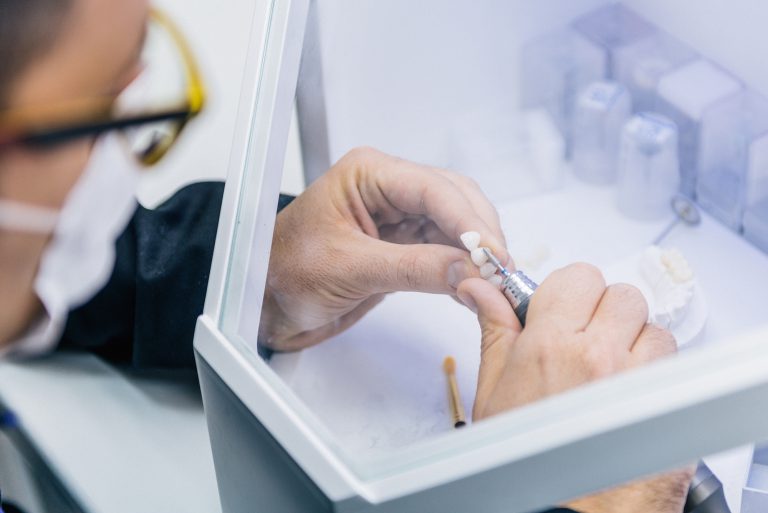
Your New Life with Dental Implants
Your smile will undergo a remarkable transformation following the installation of a dental implant—undoubtedly for the better.
Maintaining your oral health becomes a straightforward task with dental implants. Continue brushing your natural teeth using a gentle, non-abrasive toothpaste, and incorporate gentle flossing around your implant into your daily routine. We can guide you in the optimal technique for this, including cleaning beneath an implant bridge. If you participate in sports, exercise caution to safeguard your implant, as a forceful impact to your mouth can dislodge it, similar to any other tooth. Consistently schedule routine checkups to ensure the ongoing health of the tissues surrounding your implant. Unlike other tooth replacements, the need for updating or replacing your implant every few years does not apply.
With just a little attentiveness, your dental implant is poised to remain a steadfast companion throughout your lifetime, bestowing upon you years of resilience and self-assured smiles!
Start by booking a consultation today
How It Feels to Get an Implant
The procedure is notably more comfortable than you might anticipate.
Firstly, we ensure comprehensive numbing of the surgical area through a local anesthetic, effectively eliminating any pain during the procedure. Secondly, we employ cutting-edge dental techniques and treatment planning technology, streamlining the surgery for minimal invasiveness and brevity. Additionally, we provide sedation alternatives that induce such profound relaxation during the surgery that recollection of the sensation becomes nonexistent.
The majority of patients without severe dental apprehension manage well without sedation, with many even describing a sense of boredom during their dental implant surgery. Overall, the placement of a single implant typically takes no more than half an hour.
In the hours following your dental implant surgery, you might experience slight swelling and bruising. These reactions are normal and easily manageable. Upon completion of the surgery, we will furnish you with written instructions to alleviate post-operative discomfort and swelling. This facilitates the initiation of your recovery process prior to the waning of the local anesthetic. Improvement at the surgical site is generally noticeable within about a week after the procedure.
Keep in mind: dental implant treatment boasts a notably high success rate, rendering it one of the most reliable and anticipated dental procedures.

Your Dental Implant Treatment Journey: What to Expect
Here are the basic stages in your treatment journey to getting a new smile with implants.
Assessment
The initial step involves conducting a dental implant consultation to determine your candidacy. In this phase, we will conduct X-rays and a three-dimensional CT scan of your jaw to gauge your bone volume and establish a detailed blueprint for your implant procedure. By capturing scans of your teeth and gathering additional diagnostic data, we will compile a comprehensive overview of your oral condition. This information will serve as the foundation for meticulous treatment planning.
Implant placement
Once we have confirmed the effective numbing of your surgical site with anesthesia, our next step involves making a minor incision in your gums to access the underlying bone. Subsequently, a small hole will be carefully drilled into the bone, providing the space for the implant screw to be positioned within the hole. Depending on the situation, we might proceed in two ways:
In certain instances, we will seal the gums over the implant, allowing it to heal in place. Alternatively, we might affix a healing abutment atop the implant before closing the gums around the abutment, promoting optimal healing and integration.
Implant restoration
A period of healing over the next several months is necessary. Subsequently, during your return visit, we will assess the implant’s integration with the bone tissue, ensuring a secure bond. Assuming positive results, we will initiate the process of fitting your restoration. Upon the completion of this phase, you’ll be the proud owner of a new, fully functional prosthetic tooth.

Craig M. Misch, D.D.S, M.D.S.
Specialist in Oral & Maxillofacial Surgery, Prosthodontics and Oral Implantology/Implant Dentistry
Your Dental Implants Specialist in Oral & Maxillofacial Surgery, Prosthodontics and Oral Implantology/Implant Dentistry
Dr. Misch has published over 70 scientific articles and 22 textbook chapters on dental implants, bone grafting, and implant prosthodontics. He has been the main podium speaker at numerous conferences including the American Dental Association, Academy of Osseointegration, American Association of Oral and Maxillofacial Surgeons, American Association of Periodontology, American College of Prosthodontics, American Academy of Implant Dentistry, and International Congress of Oral Implantologists. In addition, he has lectured extensively throughout North and South America, as well as Europe, Asia, and the Middle East. Dentistry Today has recognized Dr. Misch as one of the “Leaders in Continuing Dental Education”. He is a consultant and has performed clinical research for many dental manufacturers. Dr. Misch serves on the advisory board for the Michigan-Pittsburgh-Wyss Regenerative Medicine Resource Center providing grants for research on tissue engineering for dental, oral, and craniofacial tissues.
Contact Us Today
to schedule an initial consultation & exam.
We need to have a complete picture of your oral health and esthetic smile goals before we can provide you with a treatment quote and get you on the road to a new life with dental implants. Contact us and we will get right back to you to help you schedule your consultation.
Frequently Asked Questions
The remarkable aspect of dental implants lies in their discretion; revealing that you have one would be solely at your discretion. Even if you chose to share this information, it might be met with disbelief unless substantiated by an X-ray. The implant screws remain concealed beneath your gums, hidden from view, and are cloaked by restorations that impeccably mimic the appearance of natural teeth.
In most cases, getting dental implants to support a bridge or false teeth is the better option over getting a denture. This is because doing so means you won’t have a denture resting directly on your gums, chafing your gums and promoting bone resorption in your jaw. However, there are cases where implants are just not a practical choice and a denture is the safer and simpler option. It’s important to discuss the pros and cons of both tooth replacement treatments with your dentist or a skilled implant oral surgeon so that you can make the right choice.
Dental bridges and full or partial dentures are still good choices for replacing teeth. In fact, these are your only options for replacing teeth if dental implants are off the table. Schedule a consultation with our team to learn more about your treatment options if you feel there is a reason you shouldn’t get implants.
For someone to qualify for implants, they should be a grown adult whose jaw and skull have finished growing. They should have good oral health, plenty of healthy bone tissue in their jaw, and no medical issues that would contraindicate dental implant surgery. A good dental implant would also be someone who is capable and willing to practice excellent oral hygiene. You can call us for a consultation if you aren’t sure whether you’re a candidate for implants. Even if there is some factor that disqualifies you at present, we can work with you to help you restore your health with the goal of qualifying to get an implant.
Absolutely. No matter what kind of dental implant restoration you ultimately receive, the goal is to make it look as lifelike as possible. Your opinion will be essential during the restoration planning process to ensure that the result matches exactly what you had in mind. Once your implant treatment is complete, you won’t be able to tell apart your implant from the rest of your teeth.
Modern dental technology has made the dental implant procedure a very predictable and virtually pain-free one. Our team uses highly precise surgical planning technology which results in a very minimally invasive procedure so that you can have a comfortable recovery with almost no bleeding and faster healing.
You could be right back at work as soon as the day after you get your implant. Of course this depends on how your treatment goes and how your body responds to the surgery. Even though dental implant surgery is very minimal, it’s smart to plan to take a day or two off, just in case. Your body needs rest in order to begin the crucial healing process, and you may need more time than you think if your treatment plan includes tooth extractions or multiple implants.
Your implants need to be cared for and maintained much like your other teeth. Having a dental checkup about once every six months should be adequate for keeping your implants healthy, but you may need to visit your dentist more often than that for other dental health reasons.
Daily brushing and gentle flossing along with regular dental checkups is sufficient to keep your implant healthy. You’ll never have to worry about a dental implant developing a cavity as it isn’t a natural tooth, but the surrounding tissues can break down if they become inflamed from poor oral hygiene.
Certainly not, in contrast to alternative tooth replacement methods, dental implants do not necessitate regular replacement. As long as you maintain your oral health, a dental implant has the potential to remain a lifelong companion.
Mini implants are dental implant posts with a smaller diameter than regular implant posts. Because they are so thin, mini implants can be placed directly into the gums and bone at the same time, eliminating the need for surgical cutting, bone shaping, and sutures.
Some patients conclude that “mini” must mean “cheap,” but mini implants are not a more cost-effective alternative to regular implants. Although faster and more affordable than regular implants, mini implants can’t deliver the same level of results. There’s no proof that mini implants are as effective and long-lasting as regular implants. Mini dental implants are more prone to damage and failure because they are slimmer and can’t provide adequate support in areas of soft bone tissue.
Mini implants have their place, however. Dental implant surgeons may place them temporarily to support a restoration while waiting for a regular dental implant to heal. A mini implant can also come in handy when there’s not enough space between two front teeth for a regular implant.

